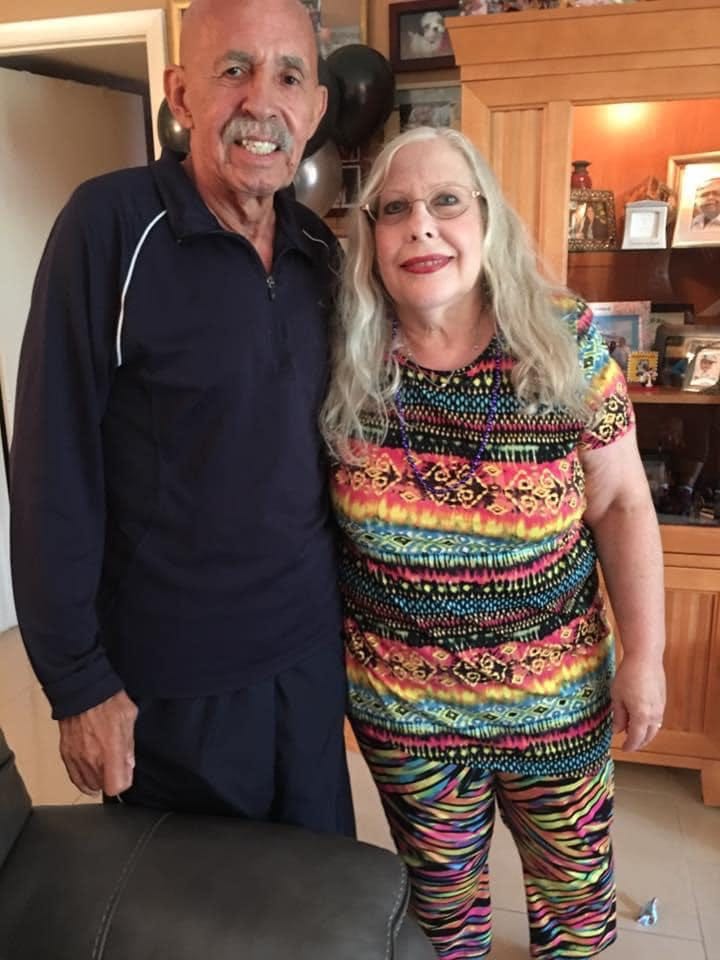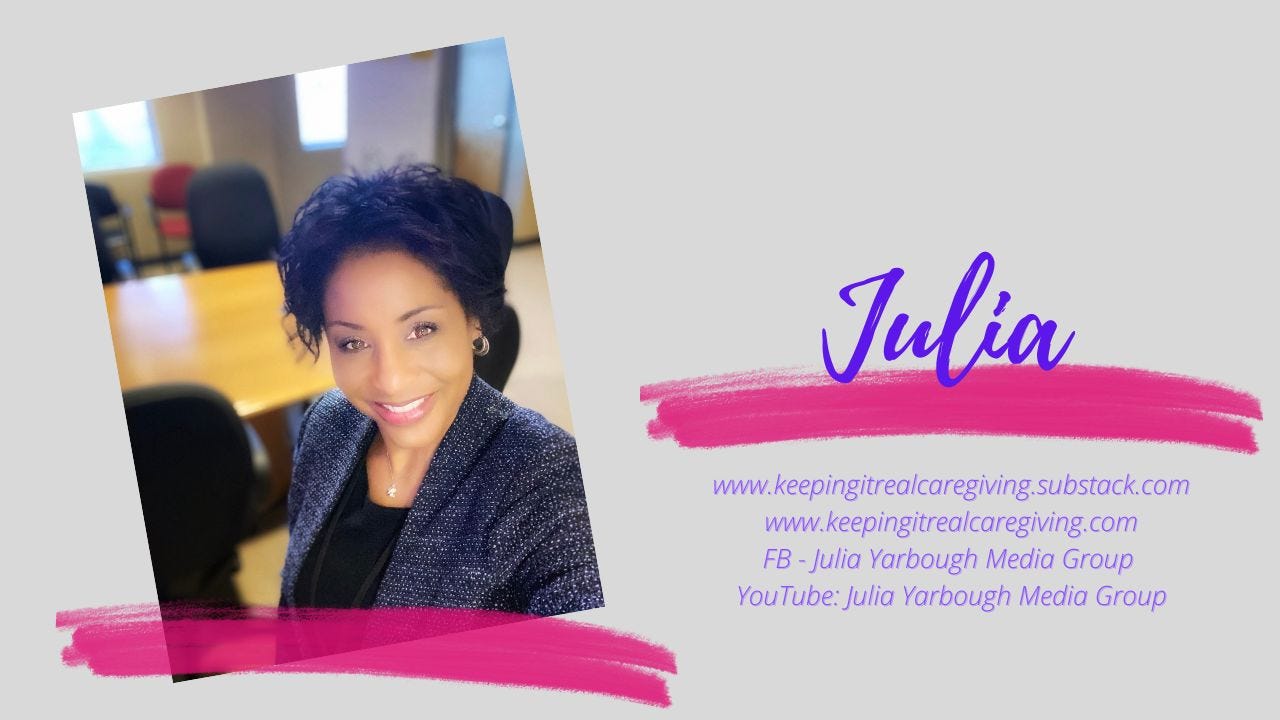Show your appreciation: One spousal caregiver says always remember the little things
In Your Own Words
Hello KIRC fam!
A good friend of mine would often tell me, ‘It is the little things that matter the most, because if someone can’t get those right, then you probably can’t count on them to handle the big things.’
When it comes to family caregiving, that sentiment is truer than you might realize. And when it comes to spousal caregiving? One woman now believes paying attention to the little things should be a golden rule.
I recently interviewed Elaine about her caregiving reality involving she and her husband.
For the past 28 years Elaine has called South Florida home. She says she and her husband Wilson, have been married for 26 years but together for almost 40 (congratulations btw…) Elaine is 70. Wilson is 85.
Over the past 20 years, she says they both have faced several serious health challenges – high blood pressure, stroke, loss of sight, bone and joint decline, just to name a few. Each, at different times, has had to help take care of the other.
Elaine discovered our KIRC family during a recent Sunday Coffee Chat & Support event online. We connected after that, and because of her experiences, she wanted to share with all of us a handful of lessons-learned about caregiving.
In Your Own Words
Q: When your husband faced health declines, what types of care did you offer?
A: There were times when I stayed in the hospital with him. At home, I took good care of him – made his meals and took care of his medications.
Q: You said you have both cared for each other. Tell me about that?
A: In 2004 my husband had different health crisis I helped him with. Then in 2012, I had a hospital stay for the first time in my life. Over the years there have been different issues with neuropathy and last year I fell and suffered a fractured knee. I am now dependent on a wheelchair or a walker to get around. Now, even though my husband has vision in only one eye and he is older, he drives me to the doctors.
I am appreciative of what he does for me, and I do see that it takes a toll. It went from me making his meals, to now he is at my beck and call.
Thankfully my husband hasn’t had any crisis recently. But we do get concerned. If he has to be in the hospital, who can help us?
Q: What have you learned the most because of needing care?
A: It is a wake-up call. I take it one day at a time because we have each other, but it is scary in a lot of ways. For instance, I was in rehab for 20 days after my knee fracture and it was the most horrible 20 days of my life – I’m not exaggerating – it was HORRIBLE! It has given me a new vision about how important care is.
Q: What do you mean by horrible?
A: I would press the call button for help and maybe someone would come. I might need pain medication and maybe they would come. At that time, I was clueless about the process of finding a rehab facility. Luckily my husband would come every day and visit me. Outside of that, I was at the mercy of the caregivers.
Q: What would you say are your two biggest ‘lessons learned’ you would tell others regarding caregiving (for you and your husband)?
A: Be prepared! When I was young, I didn’t think ahead. I wish I had gotten long term health insurance. I had heard about it, but didn’t do it. The best time would have been was I was younger. And, I learned to appreciate my husband in different ways. Taking care of me has taken a toll on his health. I appreciate him.
Q: And your relationship? How has that changed?
A: Since having to help take care of me, I’ve seen a more empathetic side of him. He hated me being in rehab; he saw how people treated others. And my husband has never been extremely demonstrative, but he has started getting more that way as we get older. He’s always telling me, multiple times a day, how much he loves me. And we didn’t always do that.
Q: Any nuggets of advice for other couples who might find themselves a spousal caregivers?
A: I would say, show your appreciation to your spouse. Do your best to not overburden them. And don’t sweat the small stuff.
Q: What have you learned most about yourself?
A: I’m learning to be content in my present situation. I used to always be out, even if we were going nowhere, or even just to the supermarket. I’m learning to be content in the change of circumstances and really appreciate my husband and finding hope for the future.
Being in rehab has given me better understanding for elderly people who live in a nursing home. It makes me want to stress to others to get prepared. It makes me think about what a good friend said to me years ago, before she became a parent. She said, “I have to have a child because I need someone to take care of me when I’m old.”
I understand now why she said that.
Keeping it REAL Caregiving would like to thank Elaine for sharing a bit of her journey with all of us. She makes excellent points, many of which we have discussed here at KIRC in the past. Most notably, getting prepared well in advance.
Related articles
Start thinking about your future care needs sooner, rather than later. None of us know what is around the next corner. But the more we know now, the better off we just may be.
Call to Action
*Do you have a personal story or caregiving journey you believe could help others? Keeping It REAL Caregiving would love to hear from you!
Submit your ‘nuggets of wisdom’ for consideration for an upcoming post, leave a comment for discussion, and we would love for you to share! Remember, we are all in this together!
*Know someone who is or is about to become a caregiver who might enjoy Keeping It REAL Caregiving? Please share our work with them, too!
*Interested in advocacy efforts? Keeping It REAL Caregiving proudly serves as Northern California Regional Advocate for the California Coalition on Family Caregiving. Click here to learn more!
*Does your organization or business provide resources that can benefit others? Contact Keeping It REAL Caregiving to learn how to have your services or products featured in upcoming posts.
Until next time~
Julia












